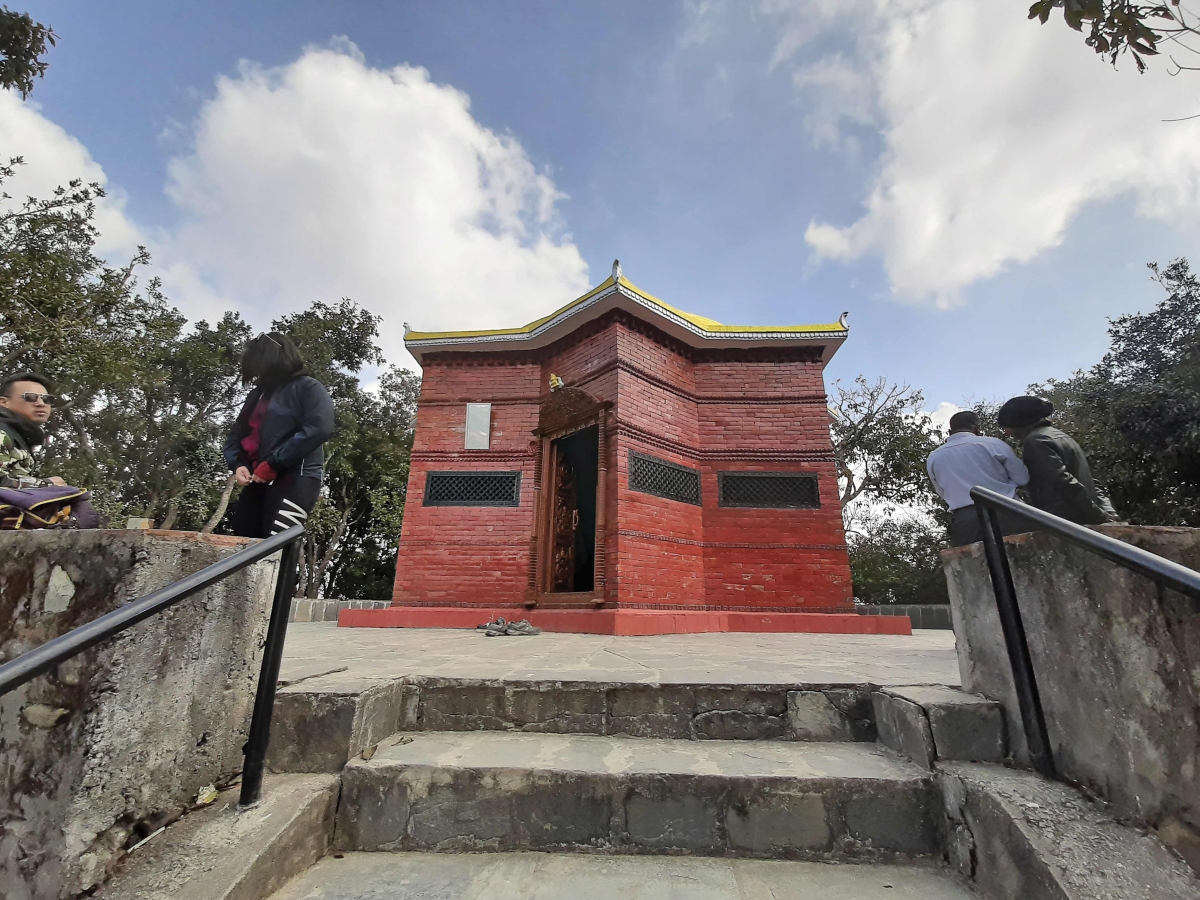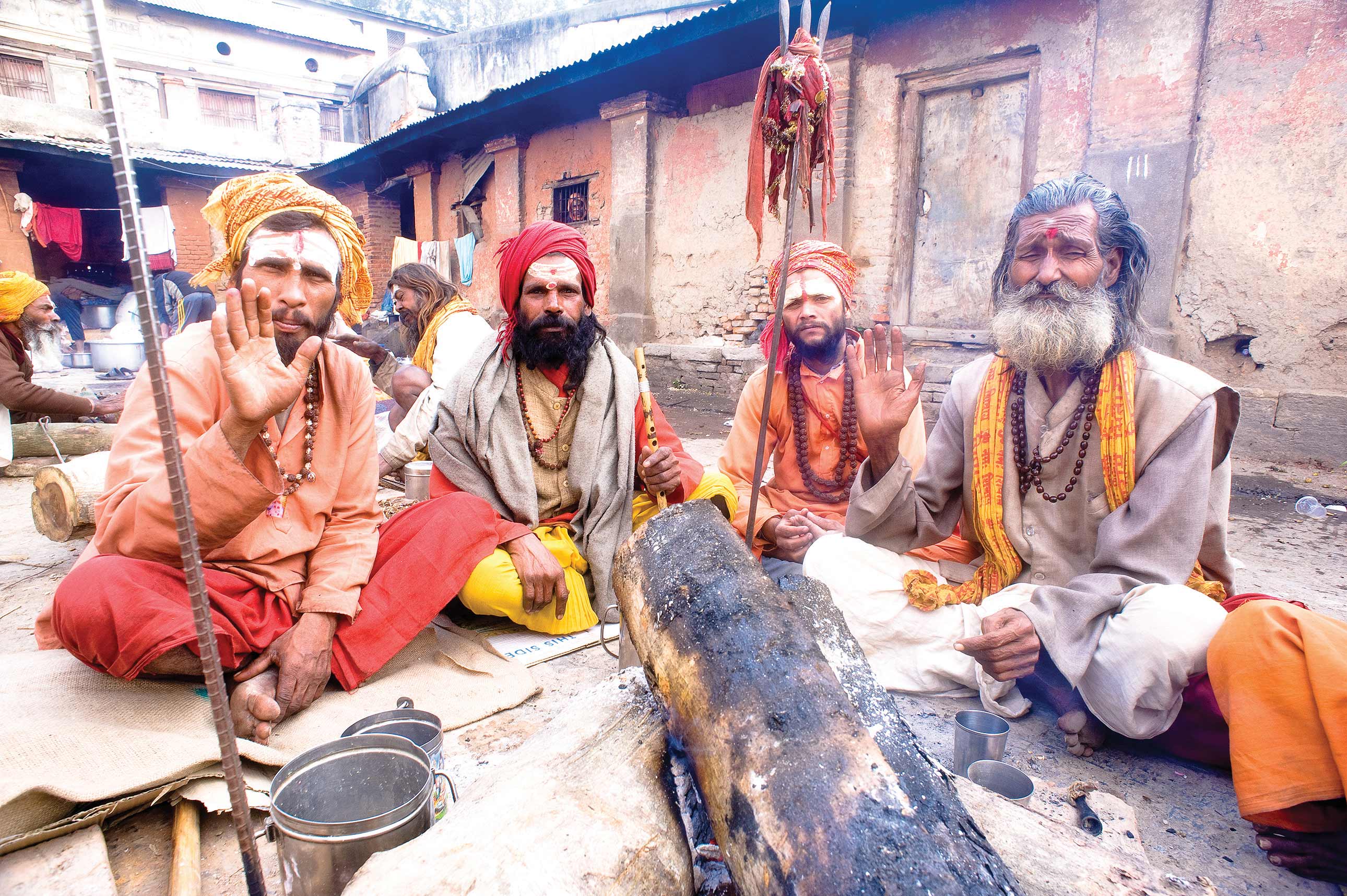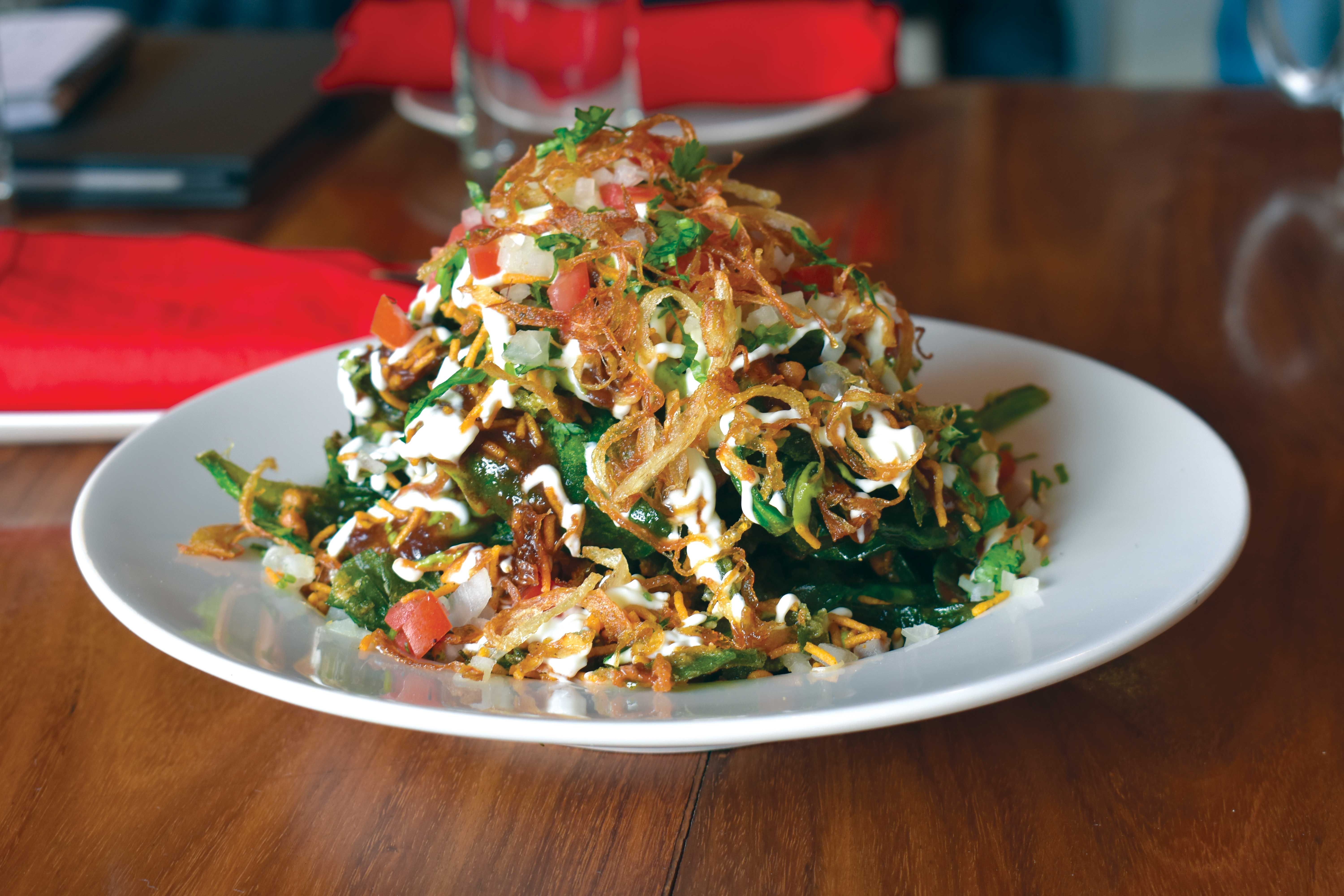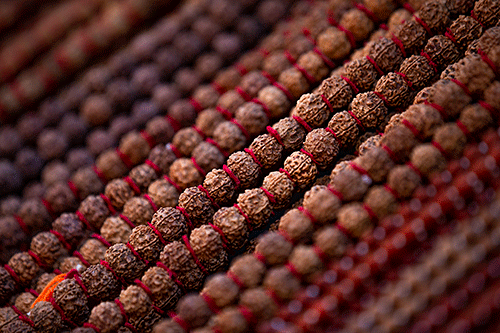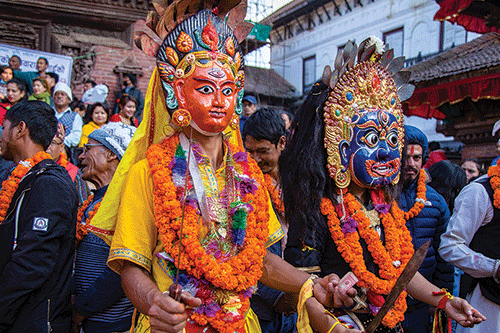For a unique and refreshing cultural weekend getaway, look no farther than Panauti, where you can experience an ancient but still vibrant way of life in a family environment.
Panauti, just 32 km east of Kathmandu, echoes a Kathmandu Valley from decades ago; green fields of organic produce blended with pagoda tiered roofing that towers over sun dried brick structures providing a spiritual agora and center of town. Roads uniquely scaled by brick designs lead one through winding streets under the mysterious gaze of latticed wooden windows, the aromas of spices from the fry pan tease the nostrils, the sound of elders reciting ancient and mysterious Vedic songs fill the air and are only disturbed by the hiss of pressure cookers.
The simple charm of Newari lifestyle continues to live on ever so prominently through a tourism founded, community headed effort for progression, only disrupting the sound culture through a short and swift whistle for attention; just as the pressure cooker operates, it is necessary for survival, sustenance, and seeing tomorrow.
The most recent tourist season has brought in a larger number of tourists than ever before to Panauti, due to efforts by community grassroots tourism. Founded in the mid-14th century, Panauti was even subject to being traded as part of King Bhupatindra Malla of nearby Bhaktapur’s prestigious marriage dowry to his sister. The area slowly populated afterward as King Prithvi Narayan Shah united Nepal through the same era. The modern municipality has a population of around thirty thousand, predominately ethnic Newars, though since the 21st century, Brahmin, Chhetri, and Tamang folk have been harmoniously inhabiting the unique municipality with them.

The Amatya family have lived in Panauti for generations, and have led the effort to create a particularly influential community force throughout Panauti in gaining numbers through a unique form of tourism. As we meet and greet the family, they grace us with marigold garlands and brief us on the homestay over a freshly poured Fanta outside their home and shop. As the sun sets, they begin closing up their shop, eager to exchange with their new visitors, while I quickly jot down what is clear from a concise five minute briefing with ease: established, educational, empowering women,and encouraging mindful consumerism.
Three years ago, Ashok Amatya, tour guide and father, started to realize that there was a growing demand for tourists to have genuine interactions with everyday Nepali life, and to experience what it is like to live with a Nepali family. Sharing the responsibility with his wife, Shilpa, and daughter, Amy, they decided to start the concept of a community homestay network that would welcome tourists into their home and those of others surrounding. To set up the initiative, Ashok consulted his managing director at Royal Mountain Travel for support, and to bring the plans into practice. When he mentioned that he wanted the process to be led by women in the families, he was greeted with a flood of enthusiasm; in the saturated tourism industry, having women lead, teach, and tell stories makes a great point of difference.

Ashok was encouraged to get to work straight away in preparing their home for the comfort of housing tourists. Fresh coats of paint, comfortable mattresses, wifi, Western style toilets, and hot water were installed in the Amatya home, and so the standard and example became set for others in the community to join them and do the same. Since these humble beginnings, some twenty homes have opened their doors, and lives, in Panauti over the past three years.“Men used to think that women can’t do anything, they thought that a woman’s life would start in the kitchen and end in the kitchen,” recounts the charismatic Amy, as she sits sipping chiya in her parents’ shop. “Many young girls wouldn’t even leave the house, this was three years ago.” As Amy says this, a group of her friends arrive to greet us and say hello; they too have begun to support their families by upgrading a room of their home and welcoming visitors into their daily life. “Nowadays, when they see women working in the tourism industry and welcoming guests into our town, they are happy for us. We are economically empowered.”

“The Community Homestay started gaining momentum after we began to do some group focus sessions on English language skills, and invited families to join in. We then began to start information sessions on sanitation,” recounts Amy. Panauti is noticeably clean, especially on the street of the Amatya’s residence; rubbish is still around, but there are bins which people are encouraged to use.
Every second Saturday, they lead a group of people to clean up the plastic trash around the city.
“Now they think a little bit more before they throw their plastic on the ground,” chuckles Ashok.
The Amatyas are well drilled in welcoming guests, and after around twenty minutes of chatting, realize that we should see our room and have some space for half an hour before making dinner to-gether. Every homestay teaches their visitors how to cook the local daal bhaat. A wonderful way to bond and get to know each other, while learning some useful practical tips. Every part of the meal is covered, from making the pickle to cooking the meat and preparing the dal, and of course, rice in the pressure cooker. The Amatyas often roll chapati breads with their guests as well, a deliciously simple way to complement a meal. I am told when in Panauti, to always request potatoes, the area is renowned for them. Freshly harvested, they are cut into finger chips to accompany our daal bhaat.
The food is simple and delicious. Amy’s friends join for dinner, and it is notable that three years ago, a young woman out after dark would have been uncommon and frowned upon. The conversation ranges, and it is clear that the family is well educated and genuinely interested in local and international events. “Whenever someone comes into our home, we treat them like family and grow close very quickly,” Amy quips between mouthfuls.“We usually have people stay for one night, but had a group from Melbourne University conducting research on waste management stay for a month. When they left, it was very emotional, they struggled to even look at us.”
Full of delicious daal bhaat, we organize our morning plan and get a good night’s sleep, peacefully quiet, with distant barking dogs guarding the night, and a gentle country breeze through the win-dow. As morning dawns, and the fields green through the window, we wake and drink chiya. Amy leads us out for an early morning walk through Panauti via the bus park, where we find some wom-en walking through and collecting rubbish as part of the extended cleaning initiative, before the day is fully into swing. As we walk through the streets, we are greeted and smiled at by locals. Past the local vocational academy in full force, preserving the culture of Newari artisanship.
We stop by one of the several ancient open pillar patis, Lampati, where travelers and porters of the past would stay overnight. Amy sits and is embraced by an elderly local woman. The woman holds Amy’s hand and speaks of how much she appreciates her; underneath the roof of this traditional old homestay, imagery of the transition of generations and hospitality is striking. It becomes apparent that she is revered as a local celebrity, many in the town know she is Ashok’s daughter, and partly responsible for the sudden influx of new faces into the city and their spending. It is not only the Community Homestay network that receives an economic boost, but visitors are shown the best places to buy garments and gifts directly from their creators, which gives a great support to families who aren’t on the homestay map.
The middle of Panauti is full of ancient Newari culture and architecture, notably the centuries-old Indreshwor Mahadev Temple. The golden pinnacle of the pagoda roof is visible from most points of town, and the temple provides a spiritual base through a Shiva Linga in its inner sanctum. Every twelve years, the temple is the center of mass pilgrimage and celebration by devotees on the occasion of Makar Mela. After circling the area via the river and visiting an impressive series of temples, receiving blessings, and browsing the local museum, we inspect some more of the homestays around town. We stop by at a family house belonging to a friend of Amy’s from dinner the night before, and are familiarly welcomed in with a cup of tea, then quickly, and with no fuss, breakfast lands on the table.

The family shows off their recently renovated room for visitors, and ask questions to try and learn more about us. Evidently, they have also had many visitors and are also well accustomed to making conversation and sharing their stories. A strong tourist season has brought over five hundred tourists in the past month to Panauti and around seventeen hundred since community homestay first began three years ago. It seems as if the town is becoming more prominent on the map with each passing season, and the influx to the local economy and visibility of their culture and environment is an advantage on a variety of levels. Locals are able to improve and broaden their society and values, and women are leading the way as the driving force and solution.
Guests are organized and provided their accommodation through a rotation system that ensures no houses are left with unequal benefit and cultural exchange. “Each time they have a guest, they learn something new, and how they can improve for next time,” remarks Amy. I follow up and ask what the biggest hurdle has been. One variable which the Amatyas have acknowledged as a difficulty is that every house and experience cannot be the exact same—they are different families. At 2500 Nepali rupees per night for a room, with all meals, drinks, and comfort included, it is an injection of support to families. Twenty percent of your stay contributes to the community homestay project fund, which is currently building a large community hall where the group can host events and educational tutorials and further the town’s historical prestige and efforts to clean. The Amatyas have been a pivotal force in transforming and rejuvenating a community into an intimate and memorable experience. They are shifting their focus to other communities to begin homestay networks, with houses already set up in Chitwan, Nuwakot, Nagarkot, Patan, and many more.
To get to Panauti from Kathmandu, there are many options: a two-hour local bus ride, an hour by taxi or private car, and around the same for a scooter. Again, the Amatyas have led the way to connecting their community to tourism by way of opening up a new trekking route from Sanga to Pa-nauti, a three-hour walk, which at the top provides a panoramic view of the Himalaya, from the An-napurna range to the Everest region. The village also connects to a series of ancient vihars and stupas on its way to the famous Namo Buddha, just a couple of hours walk away. All can be traversed with the help of a homestay family. This format of staying within a family network is an opportunity to have an authentic and genuine cultural exchange, and which supports the mitigation of cultural preservation and grassroots-founded social progression systems.
Community Homestay.com is an initiative of Royal Mountain Travel. It is a community-based homestay network that connects global travelers with real Nepalis for a genuine, local, travel experience in Nepal. Community Homestay works to encourage women’s empowerment and help pre-serve and value their traditional skills. Most of the owners of the homestays are women. A fundamental objective of CommunityHomestay.com is to inspire local and indigenous communities to interact with the outside world through tourism. CommunityHomestay.com is a platform for the women and local communities of Nepal to generate sustainable economic opportunities via responsible tourism.


